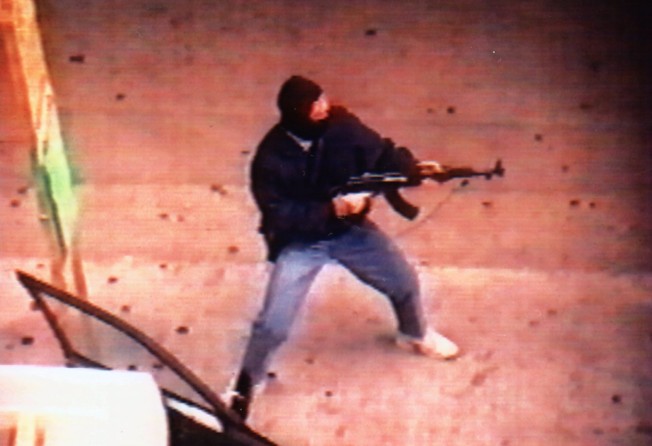Hong Kong police should get rid of their guns
Peter Kammerer says our embattled force could improve their image with one simple move - drop the hardware

The travel guides, expat forums, global surveys and anyone else you care to consult will tell you that Hong Kong is one of the world's safest cities. Statistics prove the point, with crime rates low by international standards. The facts back my experience: In all my years here, I have not once felt threatened. Why, then, are police so well armed?
Members of our 28,800-strong force carry about 6kg of gear on their belt when on patrol, most of it weaponry. Apart from a radio, there's a gun, a bullet loader, a can of pepper spray, a baton and handcuffs. There's a ceremony of sorts each day at the beginning and end of a shift, lining up to be given their gun or hand it back and have the bullets loaded or removed. Despite all the effort, cost and training, the guns are rarely drawn to counter a threat or fight a crime: the number of incidents in the past decade that required shots being fired can be counted on fingers.
There will always be the argument of deterrence. The places at the top of the personal safety category of the Economist Intelligence Unit's latest safe cities index have gun-toting police forces. Hong Kong ranks fifth, just ahead of Taipei, with Singapore at the top, followed by Osaka and Tokyo. The category assesses safety in terms of theft and violence.
But the fact that police carry guns has nothing to do with the sense of safety so many of us feel. It is to do with Hong Kong being a conservative society that abides by the law and follows the rules; the attention taken in queueing is evidence enough. If we have anything to fear, it is mainland criminals, who have been behind the recent kidnapping of the granddaughter of the founder of the clothing chain Bossini, the robbery of a jewellery shop in Tsim Sha Tsui in March, during which an employee was shot, and the serious wounding with a meat cleaver of former editor-in-chief of Ming Pao, Kevin Lau Chun-to, in February last year. Police were not at the scene of those crimes, although officers were involved in the arrest of some suspects.
Not for two decades have things on the streets been so uncertain that police have needed to have guns at the ready. During the 1980s to mid-1990s, mainland gangster Yip Kai-foon was on the rampage, staging a series of daring jewellery shop robberies that netted about HK$20 million. He had a penchant for being trigger-happy, at times having shootouts with police, once with an AK-47 rifle. He escaped from custody several times, but was caught for good in 1996 and is now in Stanley Prison serving 36 years.
Police tactics during last year's Occupy protests did them no favours. Their use of pepper spray and batons lost them respect among some people, while internationally, the students were widely praised for their calm and resolve. The retirement of tough-talking police commissioner Andy Tsang Wai-hung earlier this month opens the way for his successor, Stephen Lo Wai-chung, to steer towards a less abrasive approach to law enforcement. Regaining respect is a years-long process, so the best starting point lies in making a positive gesture.
A healthy move would be for rank-and-file officers to give up their least-used weapon, guns. They should follow the Japanese example and put more effort into acquiring martial arts skills than marksmanship.
Peter Kammerer is a senior writer at the Post